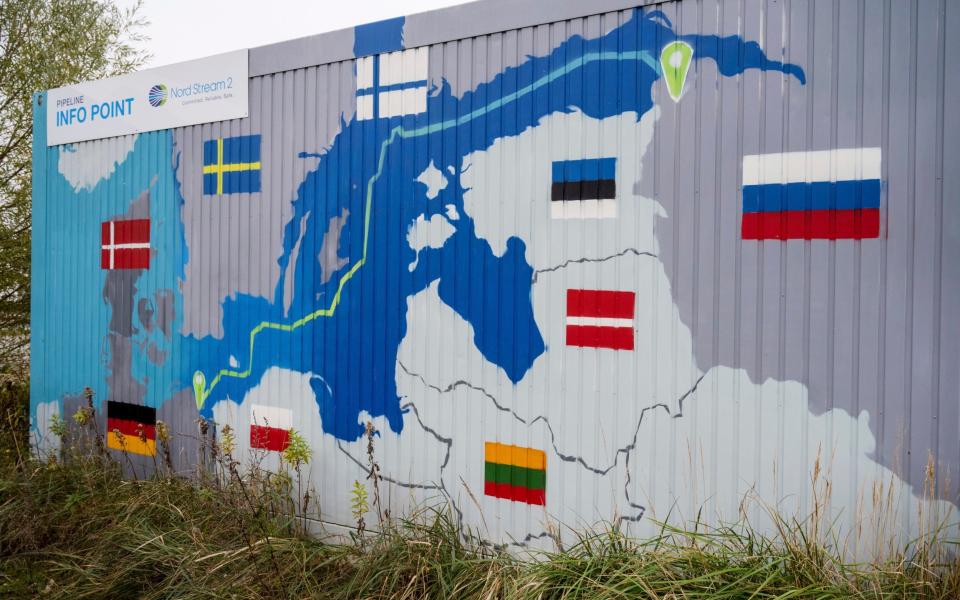German firms pay the price for Russian energy reliance as distress soars

German businesses are set to pay the price for years of reliance on Russian gas, with a new study saying the corporates in the country face soaring bills as Moscow throttles energy supplies.
Companies in Germany are at the greatest risk of default compared with their European counterparts, according to the Weil European Distress Index, which looked at data from more than 3,750 listed companies across Europe.
Levels of corporate distress in Germany are at their highest point since July 2020, when the world was in the midst of the global pandemic.
While countries across Europe are facing a cost-of-living crisis caused by supply chain issues and Russia’s invasion of Ukraine, Germany has been hit particularly hard.
Weil, Gotshal & Manges, the US law firm that compiled the index, cited Germany’s dependence on Russian natural gas as “particularly problematic” for its economy.
On Sunday, the German government announced it would restart mothballed coal power plants to preserve energy supplies through next winter in response to Russia cutting natural gas exports, a move that raised the spectre of severe energy shortages.
Gazprom, Moscow’s state-backed energy giant, told European capitals last week that gas deliveries through a key pipeline would be slashed by 40pc in response to international sanctions. Gazprom claims that pumping equipment, necessary for the pipeline, is stranded in Canada.
Over the weekend Berlin announced new emergency energy laws that will see Germany significantly increase its use of coal to generate up to 10 gigawatts of electricity for up to two years.
The shift toward using the more carbon intensive fuel comes despite the Bundestag’s pledge to phase out coal entirely by 2030.
Robert Habeck, Germany’s economic minister, and a member of the Green Party, said the decision to fire up coal power plants was “painful, but a sheer necessity”.
In February, Mr Habeck said Gazprom, which operates midstream energy infrastructure in Germany, had “systematically emptied” the country’s gas storage facilities in the run up to the war.
Weil, Gotshal & Manges said the sharp rise in corporate distress across Germany was driven by a deterioration across investment metrics, weaker valuations, and an ongoing squeeze on profitability – all exasperated by higher energy costs.
“If this upward trajectory continues, we would expect to see increased pressure on liquidity and further tightening across the credit markets with some businesses struggling to access finance and ultimately facing defaults,” said Neil Devaney, a partner in the firm’s London-based restructuring practice.
In the two most major recent crises – the Global Financial Crisis and Covid pandemic – the Weil European Distress Index has been a reliable early warning indicator of future defaults.
A separate study from German insurer Allianz predicts that the number of German insolvencies will climb by 10pc to 16,130 cases next year. Moreover, German companies that have recently gone through bankruptcy proceedings have the highest level of debt since 2009.
In 2021, the total debt stood at €48.1bn (£41.2bn) – a new high since the record level of €73bn reached in 2009 – but the average amount of debt per bankrupted company was 55pc higher, at €3.4m compared to €2.2m.
“Last year, the drop in the total number of insolvencies did not translate into a drop in the severity of insolvencies,” said Maxime Lemerle, an analyst at Allianz. “In fact, the total debt to creditors posted another increase in 2021 for the third year in a row”.
According to the Allianz, after two years of declines, global business insolvencies are expected to rebound by 10pc in 2022 and 14pc in 2023, approaching their pre-pandemic levels.
Previously, companies were buoyed by state support, but the insurer says that state-guaranteed loans are likely to be “more targeted and limited this time around”.
Weil said European governments needed to concentrate on policies that stimulate economic growth, otherwise there will be a large uptick in corporate restructurings, especially in sectors such as retail and consumer goods.

 Yahoo Finance
Yahoo Finance 